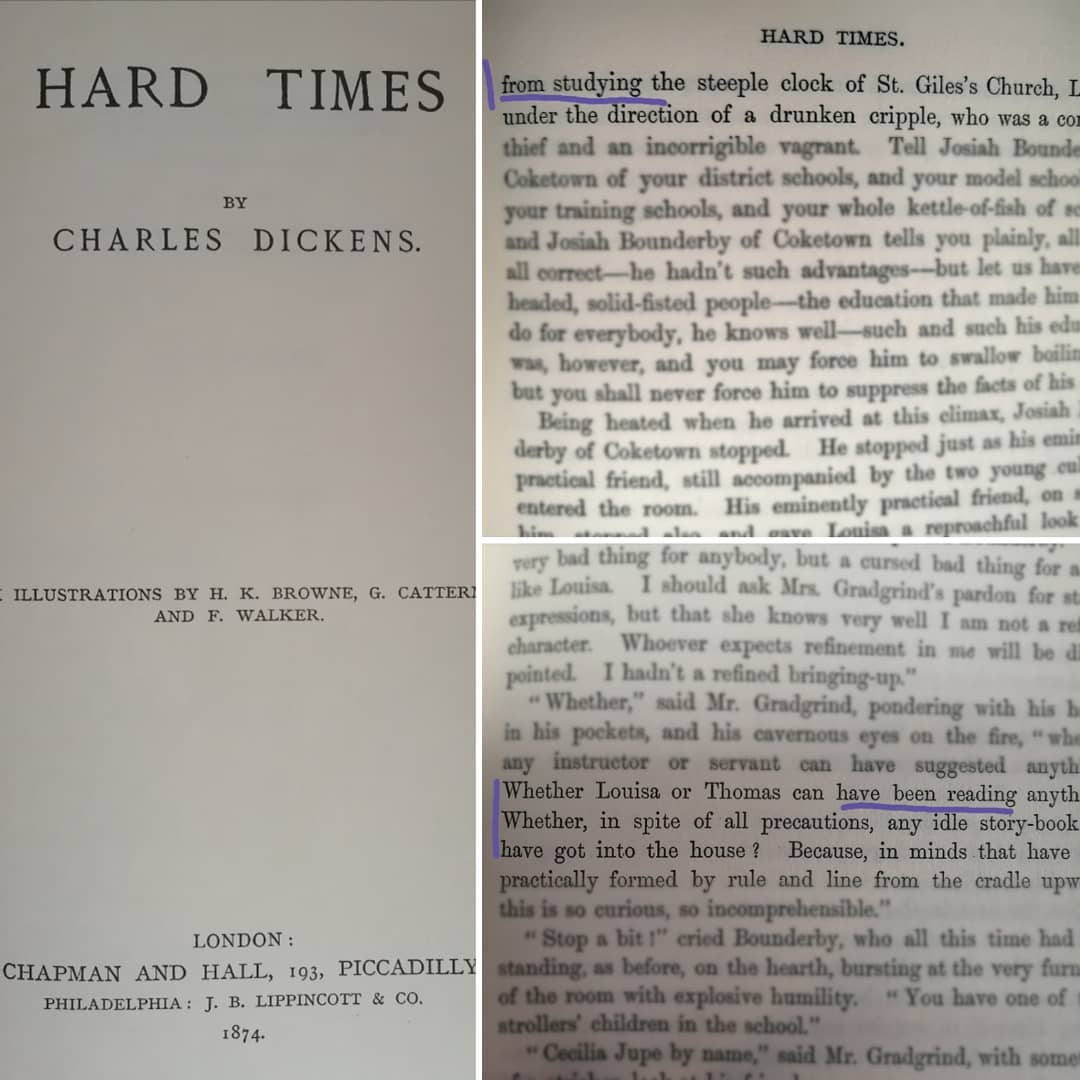For many students, one tricky point in English grammar is understanding the distinction between gerunds and participles.
How do you find them? Are they understandable?
If not, that’s fine! I will offer a brief explanation and a couple of illustrations from Charles Dickens’ classic, Hard Times.
Firstly, a participle is a word that derives from a verb and can end with either ‘-ing’ (present participle) or ‘-ed/-d/-t/-en/-n’ (past participle). It functions as an adjective or as a verbal phrase to express a particular (continuous) tense.
A gerund is a noun that is also made from a verb by adding ‘-ing’. Gerunds function as nouns. They can be subjects, direct or indirect objects, or objects of prepositions.
I once found a helpful example that illustrates the difference:
e.g., ‘Swimming, rather than jogging, is a much better exercise for recovering patients.’
Gerunds: swimming, jogging
Participle [as adjective]: recovering
Now take these two examples from Charles Dickens’ Hard Times (1854).
✍️ What are the words below that are italicised — gerunds or present participles? Be sure to read my analysis on them in the upcoming post!
📙 ‘Josiah Bounderby of Coketown … was first able to tell the time upon a dial-plate, from studying the steeple clock of St. Giles’s Church, London …’
📙 ‘Whether,’ said Gradgrind, pondering with his hands in his pockets, and his cavernous eyes on the fire, ‘whether any instructor or servant can have suggested anything? Whether Louisa or Thomas can have been reading anything? Whether, in spite of all precautions, any idle story-book can have got [gotten] into the house? Because, in minds that have been practically formed by rule and line, from the cradle upwards, this is so curious, so incomprehensible.’
– Charles Dickens, Hard Times (1854), Chapter IV




